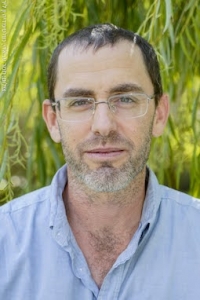 Dr. Dotan Halevy
Dr. Dotan Halevy
Areas of specialization:
Areas of competence:
Personal website
I am a social and environmental historian of the late Ottoman Empire and the modern Middle East. My research explores the transformations of environmental borderlands in the Middle East and how they shape political spaces and social identities.
My doctoral dissertation, Stripped: Ruination, Liminality, and the Making of the Gaza Strip 1840-1950, is the first work to analyze how a century-long process of economic impoverishment and political marginalization made the once-central Gaza borderland into the environmentally vulnerable periphery of Palestine by the mid-twentieth century. Relying on unstudied Ottoman, Arab, and European sources, Stripped departs from the common understanding of the “Gaza Strip” solely as a consequence of the 1948 war. Instead, it situates Gaza within the history of the Eastern Mediterranean’s integration into the global economy, the Ottoman-British quest for imperial sovereignty over the corridors between Egypt and Arabia, and the struggle of colonized people across the Middle East to overcome urban and ecological destruction. Plunged into a convoluted historical course, the work shows, the Gaza region had been largely abandoned by both the Zionist and Palestinian national movements, thus emerging during the 1948 War as a relatively safe harbor for Palestinian refugees.
My current research project, Settling Sands: Commodification, Displacement, and the Modern Coastline 1900-1970, furthers my interest in transregional environmental borderlands. It explores how the Levantine coastal plain, sparsely populated for centuries, emerged in the modern period as an aggressive frontier of economic and political expansion. Settling Sands uncovers this process by focusing on how imperial and national projects defined, regularized, and finally commodified areas of coastal dunes. First approached by the Ottomans as an environmental menace devouring fertile lands, sand areas turned into a quintessential object for state development into the post-Ottoman and nation-state periods. My preliminary research suggests that the commodification of sand boosted the rise of real estate capitalism and urbanization from Egypt to Lebanon, often by dispossessing coastal native societies and causing massive destruction to coasts’ natural formation and habitat. By the mid-twentieth century, the Levantine coast thus emerged simultaneously as a site of state power in the form of bustling cities and of stateless people contained in impoverished refugee camps. At times when the sea-level rise is already situating coastal populations across the globe at immediate risk, this research helps understanding how modern human culture not only brought about climate change but also created unequal patterns of environmental vulnerability.